第33章 CHAPTER XIV(1)
Monsieur Guillot was a man of emotional temperament. For more than an hour after Granet had left him, he paced up and down his little room, stood before the high windows which overlooked the Thames, raised his hands above his head and gazed with flashing eyes into the future--such a future! All his life he had been a schemer, his eyes turned towards the big things, yet with himself always occupying the one glorified place in the centre of the arena. He was, in one sense of the word, a patriot, but it was the meanest and smallest sense. There was no great France for him in which his was not the commanding figure. In every dream of that wonderful future, of a more splendid and triumphant France, he saw himself on the pinnacle of fame, himself acclaimed by millions the strong great man, the liberator. France outside himself lived only as a phantasy. And now at last his chance had come. The minutes passed unnoticed as he built his way up into the future. He was shrewd and calculating, he took note of the pitfalls he must avoid. One by one he decided upon the men whom gradually and cautiously he would draw into his confidence. Finally he saw the whole scheme complete, the bomb-shell thrown, France hysterically casting laurels upon the man who had brought her unexpected peace.
The door-bell rang. He answered it a little impatiently. A slim, fashionably dressed young Frenchman stood there, whose face was vaguely familiar to him.
"Monsieur Guillot?" the newcomer inquired politely.
Guillot bowed. The young man handed him a card.
"I am the Baron D'Evignon," he announced, "second secretary at the Embassy here."Monsieur Guillot held the card and looked at his visitor. He was very puzzled. Some dim sense of foreboding was beginning to steal in upon him.
"Be so kind as to come in, Monsieur le Baron," he invited. "Will you not be seated and explain to me to what I am indebted for this honour? You do not, by any chance, mistake me for another? I am Monsieur Guillot, lately, alas!
Of Lille."
The Baron smiled ever so slightly as he waved away the chair.
"There is no mistake, Monsieur Guillot," he said. "I come to you with a message from my Chief. He would be greatly honoured if you would accompany me to the Embassy. He wishes a few minutes' conversation with you.""With me?" Monsieur Guillot echoed incredulously. "But there is some mistake.""No mistake, I assure you," the young man insisted.
Monsieur Guillot drew back a little into the room.
"But what have I to do with the Ambassador, or with diplomatic matters of any sort?" he protested. "I am here on business, to see what can be saved from the wreck of my affairs. Monsieur the Ambassador is mistaking me for another."The Baron shook his head.
"There is no mistake, my dear sir," he insisted. "We all recognise," he added, with a bow, "the necessities which force the most famous of us to live sometimes in the shadow of anonymity. If the Chief could find little to say to Monsieur Guillot of Lille, he will, I am sure, be very interested in a short conversation with Monsieur Henri Pailleton."There was a brief, tense silence. The man who had called him self Guillot was transformed. The dreams which had uplifted him a few minutes ago, had passed.
He was living very much in the present--an ugly and foreboding present. The veins stood out upon his forehead and upon the back of his hands, his teeth gleamed underneath his coarse, white moustache. Then he recovered himself.
"There is some mistake," he said, "but I will come."In silence they left the hotel and drove to the Embassy, in silence the young man ushered his charge into the large, pleasant apartment on the ground floor of the Embassy, where the ambassador was giving instructions to two of his secretaries. He dismissed them with a little wave of his hand and bowed politely to his visitor. There was no longer any pretext on the part of Monsieur Guillot. He recognised its complete futility.
"Monsieur Pailleton," the ambassador began, "will you take a seat? It is very kind of you to obey so quickly my summons.""I had no idea," the latter remarked, "that my presence in England was known.
I am here on private business."
The ambassador bowed suavely.